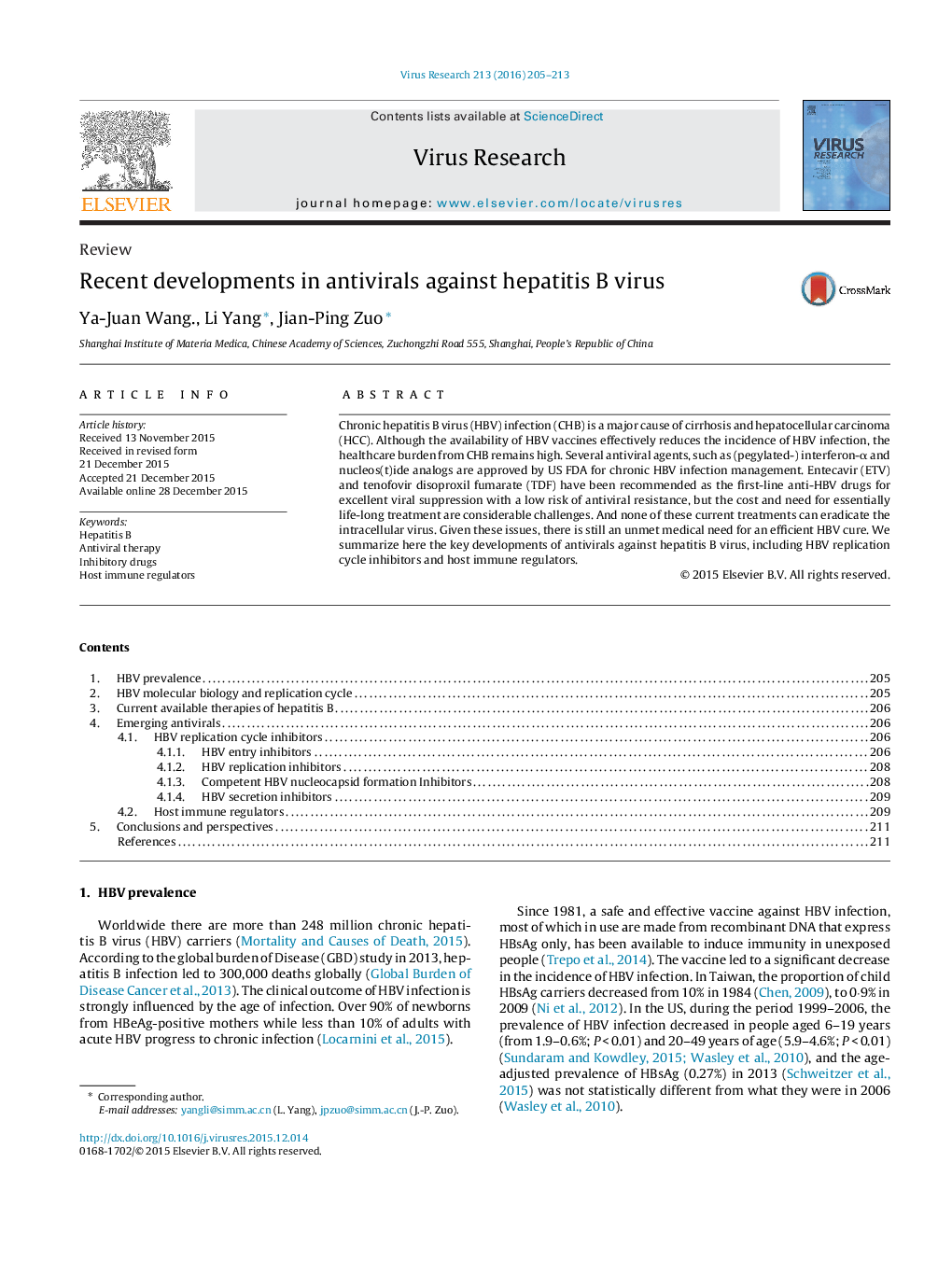| Article ID | Journal | Published Year | Pages | File Type |
|---|---|---|---|---|
| 3427910 | Virus Research | 2016 | 9 Pages |
•CHB is a major risk factor for HCC.•NAs and (pegylated-) interferon-α are currently used for HBV treatment.•This review summarizes the recent developments in antivirals against HBV.
Chronic hepatitis B virus (HBV) infection (CHB) is a major cause of cirrhosis and hepatocellular carcinoma (HCC). Although the availability of HBV vaccines effectively reduces the incidence of HBV infection, the healthcare burden from CHB remains high. Several antiviral agents, such as (pegylated-) interferon-α and nucleos(t)ide analogs are approved by US FDA for chronic HBV infection management. Entecavir (ETV) and tenofovir disoproxil fumarate (TDF) have been recommended as the first-line anti-HBV drugs for excellent viral suppression with a low risk of antiviral resistance, but the cost and need for essentially life-long treatment are considerable challenges. And none of these current treatments can eradicate the intracellular virus. Given these issues, there is still an unmet medical need for an efficient HBV cure. We summarize here the key developments of antivirals against hepatitis B virus, including HBV replication cycle inhibitors and host immune regulators.
